Keynote Speakers of ITEA 2026 (Alphabetize by Last Name)
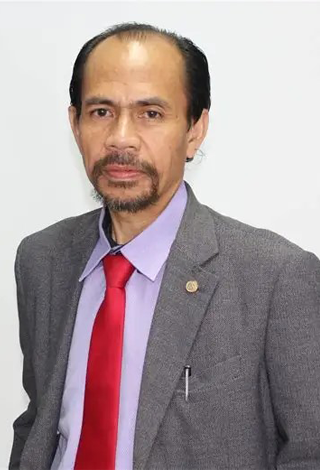
|
Prof. Deni Darmawan
Universitas Pendidikan Indonesia, Indonesia
|
|
Short Bio: Deni Darmawan is a distinguished academician and Professor at the Department of Educational Technology and Communication Science, Universitas Pendidikan Indonesia. With an H-index of 42 and over 17,000 citations on Google Scholar, he has contributed extensively to 43 Scopus-indexed articles and 14 international books. Prof. Darmawan has served as a reviewer for 13 national and international journals, including Wiley Publications, Advances in Science, Technology and Engineering Systems, and Journal of Computer Science. He has also reviewed 23 books, including high-profile titles on ICT education and higher education systems. Prof. Darmawan has received numerous accolades, including a Gold Award in Education at the ADScientific Ranking (2025) and an Honorary Professorship from the Ministry of Higher Education of Uzbekistan (2025). His international training includes prestigious programs such as the Australia Awards Fellowship and certifications from Microsoft and MikroTik. An expert in educational technology and data integration, Prof. Darmawan is actively involved in research on personalized learning platforms, with his latest study published in the Journal of Educational Technology. He is also a journal manager for the Journal of Educational Technology and Instruction and contributes to numerous national and international research projects. |
|
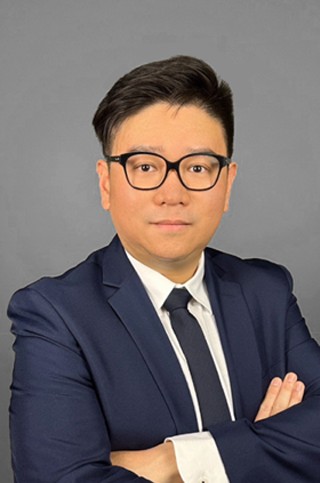
|
Asst. Prof. Lik-Hang Lee
The Hong Kong Polytechnic University, Hong Kong, China
|
|
Short Bio: Lik-Hang Lee received a PhD degree from the Hong Kong University of Science and Technology, and Bachelor's and M.Phil. degrees from the University of Hong Kong. Prior to joining ISE, he was an assistant professor (tenure-track) with the Korea Advanced Institute of Science and Technology (KAIST), South Korea, and the Director of the Augmented Reality and Media Laboratory, KAIST (2021–2023), and a postdoctoral researcher at the University of Oulu, Finland (2019–2020), working on a national-funded project, namely 5G Enhanced Augmented Reality (5GEAR). Remarkably, he delivered the first Metaverse course at KAIST (spring 2022). Also, he was an awardee of the Hong Kong Awards for Industries (Creativity and Innovation) in 2021, due to his achievement of employing augmented reality systems in Hong Kong classrooms. His research interests are to build and design various human-centric computing systems, specializing in augmented and virtual realities (AR/VR). Dr. Lee has published no fewer than 50 works in well-recognized journals, conferences, and magazines. He has served the research community at prestigious conferences and journals in recent years, such as AAAI, IJCAI, IEEE PERCOM, ACM CHI, ACM Multimedia, AAAI ICWSM, ACM IMWUT, ACM CSUR, IEEE VR, etc.
|
|
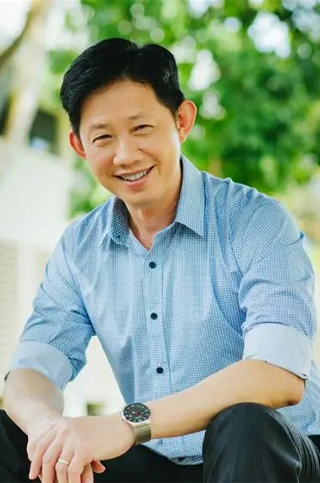
|
Assoc. Prof. Seng Chee Tan
Nanyang Technological University, Singapore
|
|
Short Bio: Seng Chee Tan is an Associate Professor with the Learning Sciences and Assessment academic group. He obtained his BSc (Hons) from the National University of Singapore in 1989 under the sponsorship of PSC Local Merit Scholarship; he completed his Master in Education from the National Institute of Education in 1997; and he obtained his Ph.D. (Instructional Systems) from the Pennsylvania State University in 2000 under the NTU Overseas Graduate Scholarship. As an active researcher in the field of educational technology for schools, he has won more than S$6million competitive research grants in various roles and helped to secure a ring-fenced grant of 5millionSGD for a research centre. He has published more than 55 refereed journal articles, more than 50 papers in conference proceedings, co-authored 2 academic books and co-edited another 2 books, and delivered more than 20 keynote addresses and invited presentations. He also contributed as an editorial board member for 5 international refereed academic journals including Instructional Science and Journal of Computers in Education. He also acted as a regular reviewer for journals such as Computers and Education, The Internet and Higher Education, and International Journal of Science Education. He has graduated 10 graduate students and is currently supervising 6 graduate students. He has held various leadership positions in the past, including an assistant director at the Ministry of Education, Head of Learning Sciences and Technologies, Associate Dean of the Foundation Programme Office, Associate Dean of the Office of Graduate Studies and Professional Learning, Associate Dean of the Director's Office and Acting co-director of Centre for Research and Development in Learning. |
|
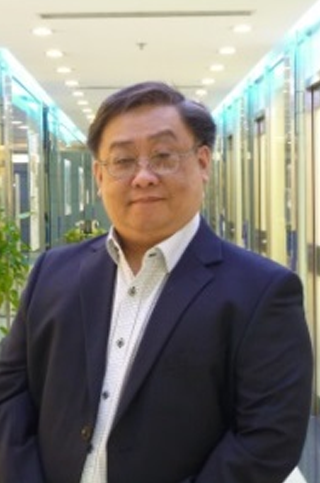
|
Prof. Eric Tsui
The Hong Kong Polytechnic University, Hong Kong, China
Speech Title: Current trends, opportunities and challenges in Educational Technologies
|
|
Short Bio: Eric Tsui is former Associate Director of the Behaviour and Knowledge Engineering (BAKE) Research Centre and currently a Senior Project Fellow at the Educational Research Centre at The Hong Kong Polytechnic University. He is the coordinator of the Hong Kong MIKE award and a Vice President of the Hong Kong Knowledge Management Society. A recipient of many Knowledge Management and E-Learning international awards including the Knowledge Management Award for Excellence in 2021 and the QS Wharton Reimagine Education Gold Award (Asia) in 2015, Professor Tsui was twice listed as an exemplary/outstanding academic in PolyU Annual Reports in the last 8 years. Abstract: This talk will summarise recent trends and driving forces behind the advancement and adoption of educational technologies and new pedagogies in higher education. Such technologies include, but not limited to, Artificial Intelligence, Extended Reality (e.g. Augmented/Virtual Reality and the metaverse), and gamification. The non-technical issues that need to be addressed as a result of adopting and leveraging these technologies are even more worthy of discussion e.g. re-design of assessments, AI competencies for teachers and students, and the ethical issues in the use of AI software. Variations in the emphasis and applications of educational technologies between Western and Asian institutions will also be outlined. |
|
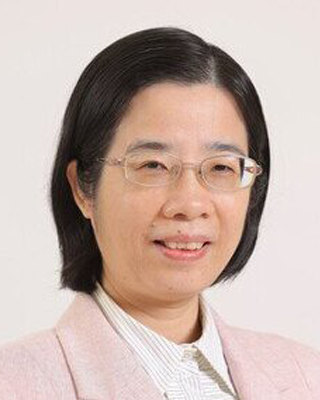
|
Prof. Minhong Wang
The University of Hong Kong, Hong Kong, China
|
|
Short Bio: Minhong Wang is a distinguished academic in the fields of learning sciences, e-learning, and knowledge management. She holds the Kuang-Piu Chair Professorship atZhejiang University (2024–present, part-time) and is a Professor at the Faculty of Education, The University of Hong Kong (since 2019), having previously served as Associate Professor (2012–2019) and Assistant Professor (2006–2012). She earned her PhD fromCity University of Hong Kong and holds a BA fromNanjing University. Her research focuses on learning sciences and technologies, e-learning design, creative thinking andcomplex problem-solving, knowledge management andvisualization, and the application of artificial intelligence in education andSTEM education . She is the Editor-in-Chief ofKnowledge Management & E-Learning (ESCI & Scopus indexed) and serves on editorial boards of several SSCI-indexed journals, includingComputers & Education andJournal of Research in Science Teaching. Prof. Wang has held visiting positions at institutions such as Harvard University, MIT, and University of Cambridge, and is a Visiting Research Professor at theBeijing Advanced Innovation Center for Future Education atBeijing Normal University (since 2016) . She has led and participated in numerous research projects, including grants from the National Natural Science Foundation of China on topics such as AI in education and STEM learning. She is actively involved in academic leadership, including serving on the Advisory Group on Academic Reviews at HKU (2023–present) and contributing to conferences and workshops, such as co-chairing a forum on AI in information management withNanjing University . |
|

|
Prof. Haoran Xie
Lingnan University, Hong Kong, China
|
|
Short Bio: Prof. XIE Haoran is a Professor and the Person-in-Charge of Division of Artificial Intelligence, the Acting Associate Dean of School of Data Science, and the Director of LEO Dr. David P. Chan Institute of Data Science at Lingnan University, Hong Kong. He is the Editor-in-Chief of Natural Language Processing Journal (Elsevier), Computers & Education: Artificial Intelligence (Elsevier), and Computers & Education: X Reality (Elsevier), Co-Editor-in-Chief of Knowledge Management and E-Learning (HKU) the Associate Editor of International Journal of Machine Learning and Cybernetics (Springer), Array (Elseiver), International Journal of Mobile Learning and Organisation (InderScience). He has totally published 414 research publications including 239 journal articles (63 papers as first or corresponding author), 7 edited books, 67 book chapters, 96 conference proceedings and 5 patents. Among all 239 journal articles, there are 189 SCI/SSCI indexed. Some journals like IEEE TPAMI, IEEE TKDE, IEEE TCYB, IEEE TAC, IEEE Intelligent Systems, IEEE Multimedia, Information Sciences, Neural Networks, Neurocomputing, Knowledge-Based Systems, Expert Systems with Applications, Computers & Education, British Journal of Educational Technology, Educational Technology & Society, Interactive Learning Environments are top-tier journals in the related fields. Among all book chapters and conference proceedings, there are many papers from top-tier conferences like AAAI, IJCAI, CVPR, ICCV, ACL, EMNLP, WWW, CIKM, DASFAA, etc. He has served as 19 guest editors in special issues of journals, editors of 7 books, organization committee chairs/members of more than 59 conferences, and reviewers of 40 international journals. Till Sep 2024, his totally Google Scholar citation counts is 18,647, h-index is 55, and i-10 index is 180 at Google Scholar. |
|
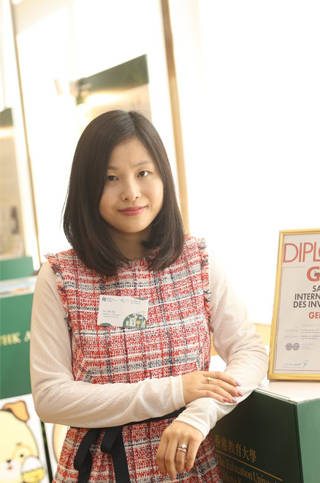
|
Assoc. Prof. Di Zou
The Hong Kong Polytechnic University, Hong Kong, China
|
|
Short Bio: Di Zou is an Associate Professor in the Department of English and Communication and the Faculty of Humanities at The Hong Kong Polytechnic University. She holds a PhD in English from City University of Hong Kong and a TESOL certificate from Trinity College London. Her research expertise lies in educational technology, language education, computer-assisted language learning (CALL), game-based language learning, and artificial intelligence (AI) in language education. She developes AWESOME, which is a web of English sources for modern education. Here, you can easily find useful materials, powerful tools, inspiring resources for language e-learning, and peers who share similar interest with you! With a strong research focus on educational technology in language education, Professor Zou has led and collaborated on over 20 research projects. She has published more than 220 research papers, primarily in SSCI- and Scopus-indexed journals, including Computers & Education, British Journal of Educational Technology, Computer Assisted Language Learning, Language Learning & Technology, and Systems. Her work has had a significant impact in the field, with a Google Scholar citation count of 13804 (as of October 2025), an h-index of 54, and an i10-index of 115. She has been recognized as one of the World's Top 2% Scientists by Stanford University for four consecutive years (2021-2024). Several of her papers in Computers & Education and Computer Assisted Language Learning rank among the Most Cited Articles in their respective journals. Professor Zou's contributions to teaching and research have earned her numerous awards. She has received the Excellent Paper Award from the International Conference on Blended Learning and the International Conference on Open and Innovative Education. Her innovative teaching projects have been recognized internationally, winning the Gold Medal and Special Awards at the International Invention Innovation Competition in Canada (iCAN) and the Silver Medal at the International Innovation and Invention Competition (IIIC) in Taiwan. Beyond her research and teaching achievements, Professor Zou plays an active role in academic publishing. She serves as an Associate Editor for Computer & Education (SSCI IF=8.9), Computers & Education: X Reality, and previously for the Australasian Journal of Education Technology (SSCI IF=4.1) (2021-2022). She is also an editorial board member for Education Technology & Society (SSCI IF=4.7) and the International Journal of Mobile Learning and Organisation. Additionally, she has led special issues for several prestigious journals, including Computers in Human Behavior (SSCI IF=9.0), Systems (SSCI IF=4.9), Education Technology & Society (SSCI IF=4.7), and Computers & Education: Artificial Intelligence (Scopus CiteScore=16.8). Professor Zou's extensive research, editorial contributions, and dedication to technological advancements in language education continue to shape the field and inspire scholars worldwide. |
|
Invited Speakers of ITEA 2026 (Alphabetize by Last Name)

|
Asst. Prof. Hilary Ng
Hong Kong Metropolitan University, Hong Kong, China
|
|
Short Bio: Hilary Ng continuously develops herself with expertise across positive education, social psychology, cross-cultural psychology, digital technologies, and educational science. As a multi-disciplinary scholar, her recent work has been published in Education And Information Technology, Interactive Learning Environment, Current Psychology, and other SSCI and SCOPUS indexed journals. In addition to Dr. Ng's research portfolio, her diverse teaching experiences in both regular curriculum and invited seminars have told her that teaching and learning could take different forms and learning from students is one of the most rewarding aspects. |
|
Continuously updating...
Part of Previous Speakers (Alphabetize by Last Name)
Dr. Feifei Han
Australian Catholic University, Australia
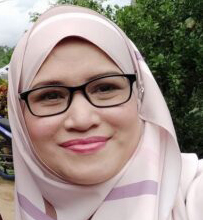
Assoc. Prof. Roslina Ibrahim
Universiti Teknologi Malaysia, Malaysia

Dr. Wen Huey Kan
Wawasan Open University, Malaysia

Prof. Agnes Kukulska-Hulme
The Open University, UK
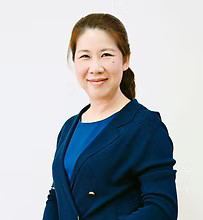
Assoc. Prof. Patcharin Panjaburee
Khon Kaen University, Thailand
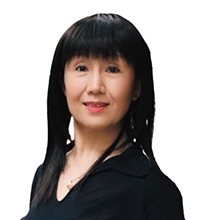
Prof. Yanjie Song
The Education University of Hong Kong, China